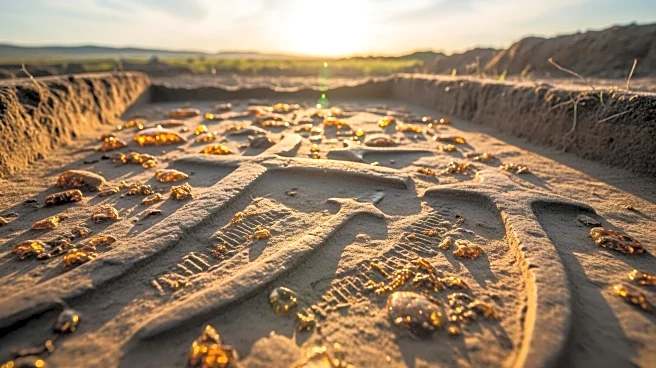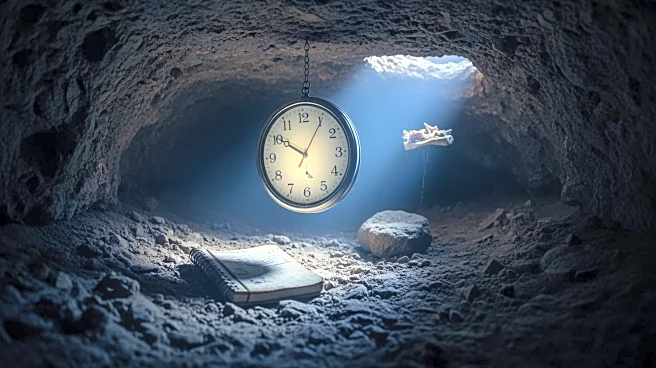What's Happening?
Researchers from the University of Tübingen have uncovered 200,000-year-old DNA from an extinct horse species at the Schöningen site in Germany. This discovery challenges previous assumptions that ancient DNA can only survive in frozen or sheltered environments.
The DNA belongs to Equus mosbachensis, a species that lived during the Middle Pleistocene. The site, known for its Paleolithic wooden spears, has provided well-preserved horse bones that retained viable DNA due to the unique anaerobic and mineral-rich conditions.
Why It's Important?
This breakthrough in ancient DNA recovery opens new possibilities for studying evolutionary history outside traditional preservation contexts. The ability to extract DNA from open-air sites could lead to reevaluations of other archaeological locations previously deemed unsuitable for genetic research. The findings enhance our understanding of ancient species and their relationships with early humans, offering insights into prehistoric ecosystems and human-animal interactions.
Beyond the Headlines
The discovery at Schöningen not only advances scientific knowledge but also highlights the importance of interdisciplinary research in archaeology and genetics. It underscores the potential for unexpected findings in seemingly inhospitable environments, prompting a reconsideration of how ancient DNA can be preserved. This could lead to new methodologies in archaeological genetics and a deeper understanding of ancient human behaviors and environmental adaptations.















